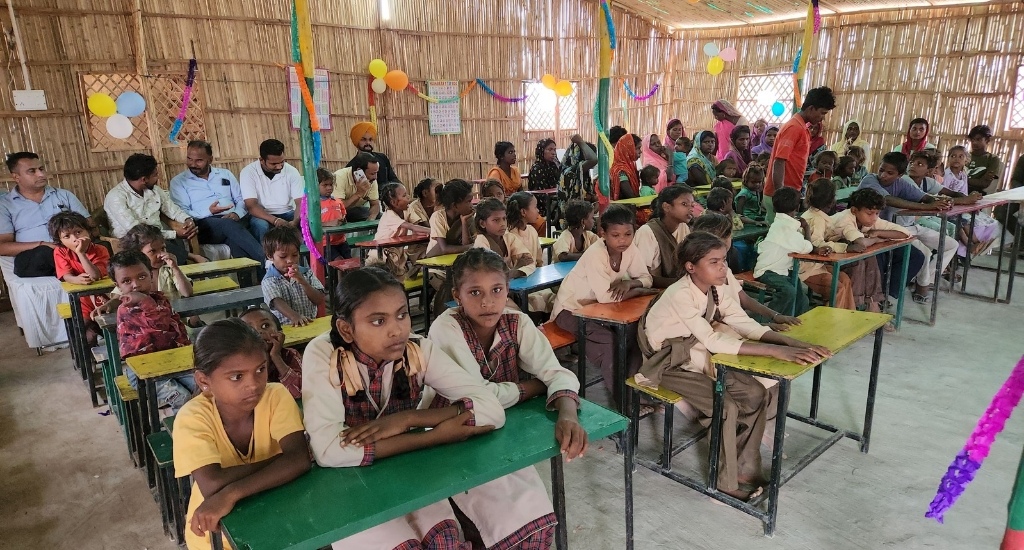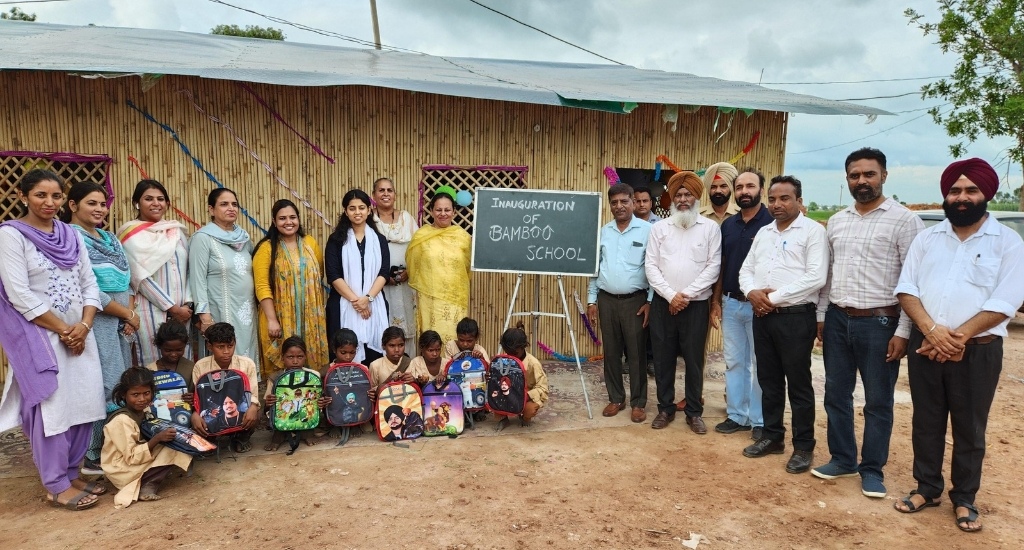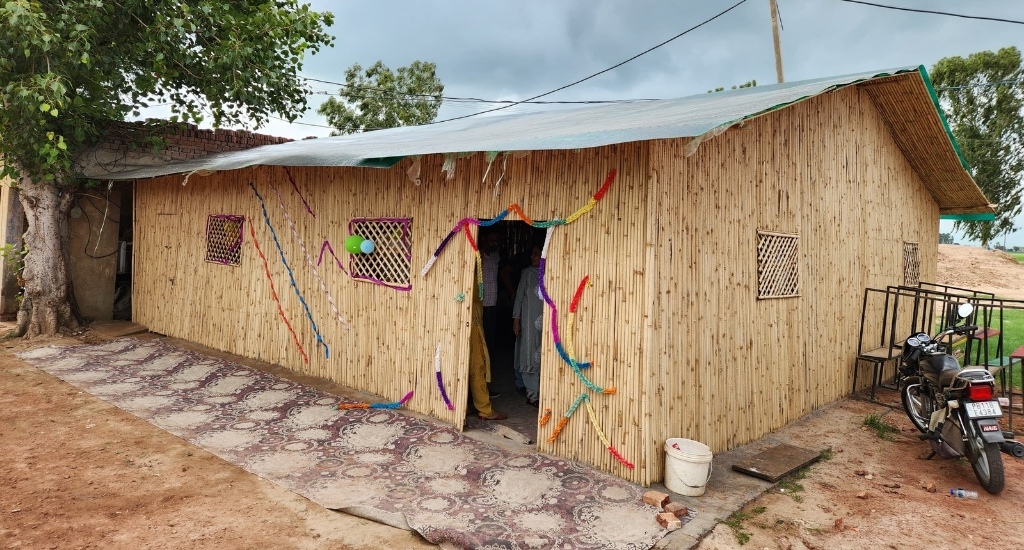A silent struggle persists across Punjab’s crop fields, factories and construction sites. Tens of thousands of migrant workers, hailing from states like Uttar Pradesh, Bihar, Jharkhand, West Bengal and Assam, toil day and night to sustain their families.
Among them, many work in brick kilns, where both husband and wife labour long hours, while their children play nearby in temporary homes constructed close by. These families, far from their native villages, are often reluctant to send their children to distant schools, fearing for their safety in unfamiliar surroundings.
As a result, many of these children grow up without access to formal education, perpetuating a cycle of illiteracy.

At a kiln near Devigarh in Patiala district, along the highway to Haryana, the reality of this situation becomes starkly clear.
Geeta, a woman working at the kiln, shared the common sentiment of many parents in her position:
“We cannot send our children away on an unknown territory. There is no school near the kiln. That’s why we don’t want to take any risk of our children getting into any trouble.”
Education, she said, can wait. “When we return to our village, the children can study according to their needs,” she added.
Also Read: Patiala sisters balance school, goat farming to reap success
However, the reality is that delaying education can have lasting consequences. Children who miss out on their early years of schooling often struggle to catch up.
Recognising this, the Punjab government recently launched a campaign to encourage parents to enrol their children in schools. Teachers, as part of this initiative, have been visiting nearby villages, persuading parents to understand that education is not just important — it is a fundamental right.
Kilns to classrooms
Harbhawan Singh, a teacher responsible for 10 schools, recounted how the campaign led him to an important realisation.
“When we were visiting the villages, we noticed children playing near the kilns. When we talked to the parents, they instantly refused to send their children since the school is far from the kiln,” he said.
The situation caught the attention of Patiala deputy commissioner Shaukat Ahmed Parray. After extensive discussions with district officials, a solution was proposed: the creation of bamboo schools near the kilns, bringing education directly to where these children live.
The concept is inspired by a successful model first established by Mechai Viraivadya in Thailand. These schools, made entirely of bamboo, are private and free, where older students teach younger ones, creating a sustainable chain of learning.
The model has been effectively implemented in flood-prone areas of Haryana, Uttar Pradesh and Madhya Pradesh, where bamboo schools were built on the banks of rivers and streams to ensure that children could continue their education despite environmental challenges.
Also Read: Migrant children get a shot at continuing education

Now, this innovative approach is being introduced in Punjab to address the educational needs of migrant workers’ children.
Safe learning spaces
One such bamboo school has been constructed near a kiln in the village of Masingan, Devigarh. Built entirely from bamboo, the land for the school was provided by the kiln owner, marking a unique collaboration between labour, education and industry.
The impact of the bamboo school was immediate and profound. Parents who were once hesitant to send their children to distant schools now feel secure in enrolling them in a nearby, accessible facility.
Sarita, a kiln worker, expressed her relief, saying, “Children are in front of our eyes, so we don’t worry now. We are not so worried about our children.”
Another worker, Choturam, highlighted the importance of a mother’s decision in the matter. “At first, my wife was also worried about sending our children to a distant school. But now, this bamboo school is a blessing for our children,” he said.
Deputy commissioner Parray is also pleased with the success of the initiative. “This bamboo school will educate children and also make them aware of their environment,” he said, emphasising the dual benefits of education and environmental consciousness.
“Around 100 children study in this school. Our purpose is to teach children, and the location doesn’t matter. Parents feel safe since the schools are near the kilns, and our purpose is fulfilled. We will also establish similar schools near other kilns,” he added.
In a region where the daily grind often overshadows the pursuit of education, the bamboo schools stand as a symbol of hope and progress. They represent a future where children of migrant workers are not left behind, but instead, are given the opportunity to learn, grow and build a life beyond the kilns.
Also Read: How bamboo farming is transforming lives in Tripura
The lead image on top shows a bamboo school set up close to a brick kiln at Masingan village near Devigarh in Punjab’s Patiala district. (Photo by Kiranjit Kaur Jhunir)
Kiranjit Kaur Jhunir is an independent journalist based in Punjab.








